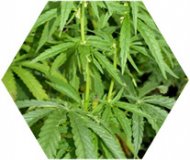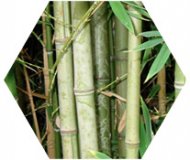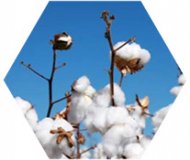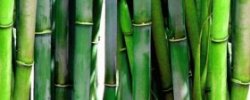 Conventional textile manufacturing the most toxic processes in the world. Standard crops like cotton fiber dump scores of a lot of pesticides in to the environment global each year, while sucking up our valuable water supply. Simply what makes pesticides, dyes, and chemical substances therefore terrible? Really, any such thing built to destroy indiscriminately can’t be great (see Aliens 1-4), but are you aware that a number of these chemical substances will also be epigenetic? This means that the changes they make to us at a genetic level in our generation become heritable to the kiddies, grand-children, great-grand-children…Does this unexpectedly make “wrapping your treats in environmentally friendly goodness” appear to be a truly good program? Read on concerning the miracles of more sustainable materials.
Conventional textile manufacturing the most toxic processes in the world. Standard crops like cotton fiber dump scores of a lot of pesticides in to the environment global each year, while sucking up our valuable water supply. Simply what makes pesticides, dyes, and chemical substances therefore terrible? Really, any such thing built to destroy indiscriminately can’t be great (see Aliens 1-4), but are you aware that a number of these chemical substances will also be epigenetic? This means that the changes they make to us at a genetic level in our generation become heritable to the kiddies, grand-children, great-grand-children…Does this unexpectedly make “wrapping your treats in environmentally friendly goodness” appear to be a truly good program? Read on concerning the miracles of more sustainable materials.
Hemp could be the super celebrity of eco-fabrics. Hemp is really green it offers really already been made use of as a carbon-negative crop. It entails no pesticides, little weeding, and grows like dickens. It even enriches the earth it results in. Could it be any wonder we called our range after this wonder-fabric? Hemp has been used for millennia in clothing around the world, and requires no chemical substances to be spun into cloth.
 Why Hemp?
Why Hemp?
- therefore green it’s carbon negative
- strongest normal fibre
- pesticide free
- fast growing
- enriches the soil it's cultivated in
- useful for many thousands of years
- blocks Ultraviolet rays
Bamboo-liscious! Bamboo is amongst the fastest growing “grasses” worldwide, and requirements no pesticides and little liquid. We love bamboo due to its smooth feel and drape, however you might love it because it is hypoallergenic, absorbent, fast drying out, and normally anti-bacterial (this means less washing, and less…um…smelling). Bamboo can also be thermally regulating, meaning (like cashmere), it keeps you hotter within the cold temperatures and cooler in the summer. It requires no work; simply hang your clothes and also the lines and wrinkles fall-out. While bamboo ought caustic chemical substances to go from flowers to pants, our bamboo textile is made in a closed-loop system definition less toxic chemical substances go out to the environment.
The Reason Why Bamboo?
- abundant and simple to make
- grows without pesticides
- normally anti-bacterial
- wrinkle resistant
- absorbent
- fast-drying
- thermo-regulating
- bio-degradable
Cotton how nature meant. Regular cotton is amongst the great evils regarding the environment, utilizing mountains of pesticides and oceans of water. Organic cotton still makes use of lots of water, however it’s all-natural, and requirements no chemical substances to convert into material. Plus our natural cotton fiber is fair-trade, bringing much-needed fair business to under-developed nations. What’s never to love?
 the reason why Organic Cotton?
the reason why Organic Cotton?
- pesticide no-cost!
- fair-trade
- natural
- requires no chemicals to transform to fabric
- second best natural fibre
- takes dye well
Beans, beans, the magical fruit…soy textile may be the new child in your area within the green clothing change. Touted as having similar properties to bamboo, soy is anti-bacterial, bunny-ear soft, hypoallergenic, absorbent, and quickly drying out. Moreover it soaks up dye tints like a thirsty camel –meaning that a lot fewer dyes are acclimatized to get strong colours that final. Our closed-loop soy textile normally a by-product of this meals business so no new beans passed away in order to make your jeans.
The Reason Why Soy?
- by-product of meals industry (recycled)
- less dyes needed than many other fabrics
- bio degradable
- Ultraviolet protection
The weaving of hemp materials is just one of the world’s oldest sectors, and very quickly would be the just lasting road left for our future. Our forefathers made use of hemp 10, 000 years back because of its extremely high fibre content and several utilizes. By growing hemp in place of cotton today, we can create 250per cent even more fibre on a single level of land. Since hemp is resistant to bugs and diseases, it needs no pesticides. By way of contrast, non-organic cotton fiber growers are responsible for over 50percent of world pesticide usage. Since non-organic cotton is actually rotated with specific food crops, poisonous pesticides build and find their particular method into our meals. Run-off from non-organic cotton industries additional pollutes streams, ponds, and all the animals that depend on them.
Apart from the myriad environmental reasons for supporting the growing hemp industry, one might also be persuaded because of the fabric’s celebrated energy. In fact, hemp is considered the most durable of organic materials: 3.3 times more durable than cotton. The extensive life of hemp ensures that if everybody wore it, we're able to decrease by 1 / 3rd the resources had a need to clothe our planet.







